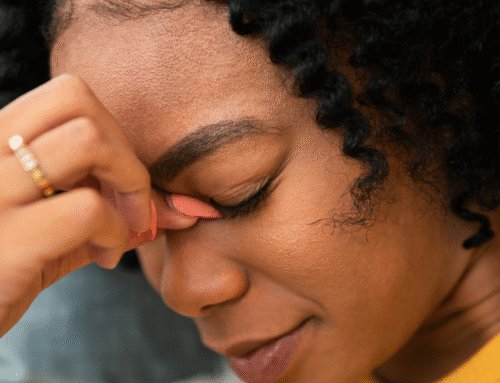Have you ever felt puffy, uncomfortable, or “full” for no clear reason—even if you haven’t eaten a large meal? That sensation of bloating is more than just an inconvenience. In Traditional Chinese Medicine (TCM), it’s a sign that your digestive system—or more precisely, your Spleen and Stomach Qi—may be out of balance.
Let’s dive into the real root of bloating, from both a Western and Eastern perspective, and explore what you can do to ease the discomfort naturally.
🌿 In TCM, Digestion Is All About Qi Flow
In Chinese medicine, the Spleen and Stomach are the central organs responsible for digestion—not just physically breaking down food, but transforming it into energy (Qi) and transporting nutrients throughout the body.
When this process is working smoothly, Qi flows freely, and you feel light, energized, and focused. But when your Spleen Qi is weak or your Stomach Qi is stagnant, food doesn’t move properly. This stagnation leads to bloating, heaviness, and even fatigue.
Common Signs of Spleen Qi Deficiency:
-
Bloating after eating
-
Fatigue, especially after meals
-
Loose stools
-
Foggy thinking
-
Cravings for sweets or carbs
-
Puffy face or limbs
Sound familiar?
💨 Dampness: The Invisible Culprit
One of the most common diagnoses for bloating in TCM is Dampness. This refers to the buildup of excess fluids and metabolic waste in the body due to poor digestion. Think of it like a swamp forming in your gut—a place where Qi gets stuck and can’t move freely.
Dampness can come from:
-
Eating too many cold or raw foods
-
Overconsumption of dairy or greasy foods
-
Chronic stress
-
Irregular eating habits (skipping meals, late-night snacks)
-
Weak Spleen Qi (often constitutionally weak or worn down over time)
When Dampness accumulates, it doesn’t just cause bloating—it can lead to weight gain, brain fog, chronic fatigue, and skin issues like acne or puffiness.
🧠 Modern Science Meets Ancient Wisdom
Western research is now catching up to what Chinese medicine has known for centuries: your gut health is central to your overall well-being.
Scientists now understand that:
-
The gut microbiome (the community of bacteria in your intestines) plays a crucial role in digestion, immunity, and even mood.
-
Poor gut flora balance can cause bloating, gas, constipation, and inflammation.
-
Stress and poor sleep directly affect the gut through the gut-brain axis.
Interestingly, TCM’s emphasis on treating the whole person—not just isolated symptoms—aligns perfectly with this holistic view.
🌱 TCM Tips to Restore Harmony and Beat the Bloat
Here are some gentle, effective ways to support your gut and reduce everyday bloating, based on traditional Chinese medicine:
1. Eat Warm, Cooked Foods
Raw salads and smoothies may seem healthy, but they can weaken your Spleen over time. Opt for warm soups, stews, congee, and steamed veggies—especially in colder months.
2. Chew Thoroughly and Eat Mindfully
Rushing meals or eating on the go disrupts digestion. Sit down, breathe, and chew each bite at least 20 times.
3. Drink Ginger or Chen Pi Tea
Ginger warms the digestive system, while Chen Pi (aged tangerine peel) moves Qi and transforms Dampness. Sip slowly after meals.
4. Avoid Cold Drinks
Iced drinks douse your digestive fire. Stick to room temperature or warm beverages, especially with meals.
5. Manage Stress
Chronic stress causes Liver Qi stagnation, which then attacks the Spleen. Try gentle Qi Gong, meditation, or simply taking quiet moments throughout the day.
6. Consider Herbal Support
Formulas like Bao He Wan or Ping Wei San are commonly used to address bloating and poor digestion. Always consult a licensed TCM practitioner to find the right formula for your body.
🌟 Final Thoughts
Bloating isn’t just about what you eat—it’s about how well your body can transform and transport food into usable energy. By strengthening your Spleen, moving your Qi, and avoiding Dampness, you can restore harmony to your digestive system—and your entire being.
If you’re tired of feeling bloated and sluggish, consider booking a session with a qualified Chinese medicine practitioner. Together, you can get to the root of the issue and create a treatment plan tailored just for you.
Your gut is your second brain—and in Chinese medicine, it’s also the source of your Qi. Nurture it wisely, and the rest will follow.







Leave A Comment